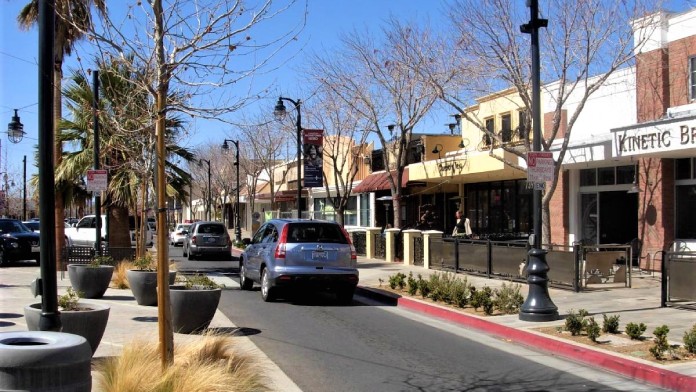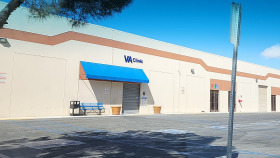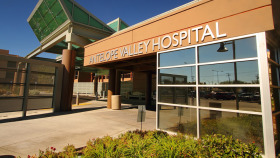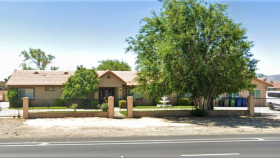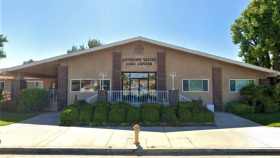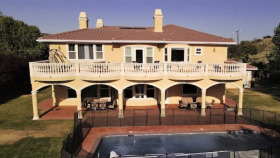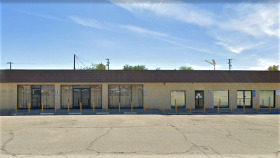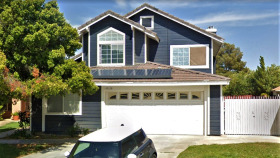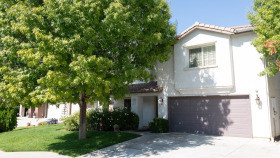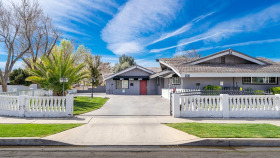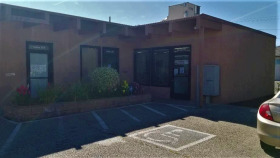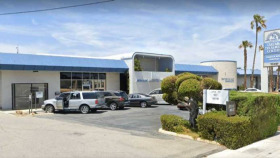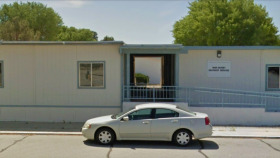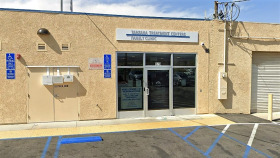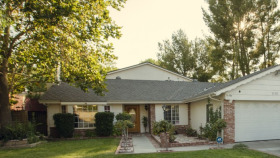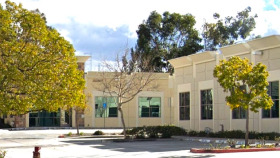Expert Insights
Here’s a bit of uplifting news: a Prison in Lancaster, California is taking its role in rehabilitation seriously by allowing male prisoners to study and become drug counselors before being released. For the past year and a half, 20 men have been working towards a degree by training as alcohol and drug counselors. It is an accomplishment that can help these men secure jobs inside and outside of California prisons. These men have taken their educational studies and future employment very seriously, dubbing their classroom a “brotherhood.” I think this is a wonderful idea, as no one can speak to addiction like someone who has been there and walked in those shoes. It’s also a wonderful way to ensure they’re able to find legitimate employment upon release and support themselves monetarily in a legal way once out. I say bravo to this prison program and encourage more to follow suit.
~ Rita Milios
How Expensive is Drug Rehab in Lancaster?
The cost of alcohol and drug rehab in Lancaster is based on several variables and fluctuates from facility to facility. What you’ll pay for treatment depends heavily on the setting you need (inpatient vs. outpatient), your program length, whether you have insurance, and what your plan covers.
Other factors that can impact your expenses include the type of care you require (dual diagnosis, medication-assisted, etc.) and the type of facility you choose. State-funded and non-profit addiction treatment centers are typically significantly less expensive than luxury facilities. Outpatient programs are also much more affordable than their inpatient counterparts in most cases.
Within a 25-mile radius of Lancaster, you’ll find 14 alcohol and drug rehab facilities.4 Many of them accept various forms of health insurance, and roughly half of them offer some form of financial assistance to eligible individuals. Of the treatment centers in and near the Lancaster area:4
If you need treatment but know you’ll struggle to pay for it, you can still access help. Several Lancaster drug rehabs are willing to work with patients, regardless of their ability to pay.
How Does Lancaster Compare in Alcohol and Drug Use?
A charter city in northern Los Angeles County, Lancaster is located in the Antelope Valley of the western Mojave Desert in Southern California. Home to over 178,000 people, many of the residents struggle with addiction and substance abuse.1 If you or someone you love falls into this category, there is help within reach. There are more than 10 accredited alcohol and drug rehab centers in Lancaster and the surrounding area that can help get you on the path to recovery.2
Like most of Los Angeles County’s 88 cities, Lancaster has dealt with substance abuse issues among its residents for many years. County data collected during 2020 shows that:1, 2, 3
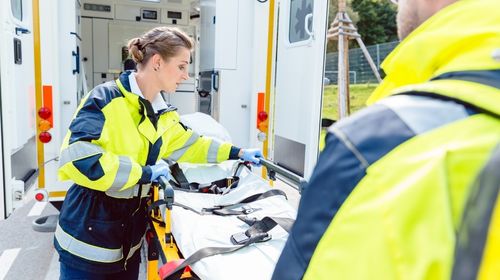
From 2010 to 2020, roughly 120,000 vehicle collisions within the county involved alcohol-impaired drivers.
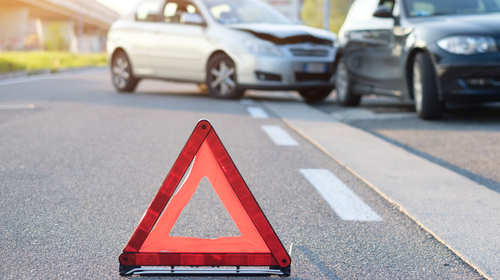
Within that same timeframe, roughly 9% of all traffic accidents in LA County involved drugs or alcohol.
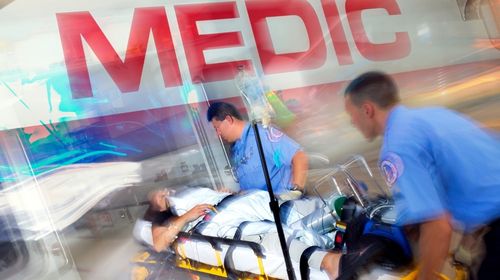
From 2010 to 2020, alcohol-related deaths in the county increased by 37%, from 1,035 deaths to 1,420.

From 2010 to 2020, roughly 64% of all drug overdose fatalities in Los Angeles County involved prescription drugs.
Alcohol and Drug Laws in Lancaster, CA
911 Good Samaritan Law: In California, anyone who seeks emergency medical assistance for themselves or someone else during a drug-related overdose cannot be arrested, charged, or prosecuted for drug possession or use. This law does not, however, protect individuals who have large amounts of illicit substances and appear to be involved in drug distribution activities.7
Naloxone Standing Order: This order allows community organizations and other entities — including public health departments, harm-reduction programs, jails, and homeless programs — to legally distribute naloxone to anyone at risk of an opioid overdose. Such organizations can also give naloxone to family members, friends, or other individuals who may be able to help save an at-risk person’s life.8
Business and Professions Code Section 4052.1: Under this statewide code, licensed California pharmacists can legally give naloxone to anyone at risk of an opioid overdose, even if they don’t have a prescription. Anyone who may be able to administer naloxone to an overdose victim can also get the life-saving, opioid-reversal medication from a participating pharmacy without a prescription.9
Drug Treatment Diversion Program: Under California Proposition 36, individuals convicted of nonviolent drug possession can choose probation and diversion into an addiction program rather than spending time in jail. By law, this choice is only available to first- and second-time offenders.10
Accommodations for Employees Who Voluntarily Enter Addiction Treatment: Under California Labor Code Section 1025-1028, employers with 25 or more staff members must make reasonable accommodations for employees who want to enroll in addiction treatment. “Reasonable accommodations” can vary but may include allowing employees to use sick days, take protected, unpaid leave, or use vacation days. The code also requires employers to take measures to safeguard the privacy of any employee who has entered rehab.
Resources
- Lancaster, California Population 2022 (Demographics, Maps, Graphs). (n.d.). Worldpopulationreview.com.
- FindTreatment.gov. (n.d.). FindTreatment.gov.
- Los Angeles County Public Health Substance Abuse Prevention and Control. (2022, July). SAPC Data Brief, Excessive Drinking and Consequences.
- Los Angeles County Public Health Substance Abuse Prevention and Control. (2021, August). Annual Overview: Patients in Publicly Funded Substance Use Disorder Treatment Program in Los Angeles County 2019-2020 Fiscal Year.
- Los Angeles County Public Health Substance Abuse Prevention and Control. (2021, January). Data Report: Accidental Drug Overdose Deaths in Los Angeles County During the COVID-19 Pandemic.
- Substance Abuse and Mental Health Services Administration. (n.d.). FindTreatment.gov.
- California Department of Health Care Services. (n.d.). Drug Medi-Cal Overview.
- Department of Health and Human Services, Centers for Medicare & Medicaid Services. (2016). Medicare Coverage of Substance Abuse Services.
- California Legislature. (2011, June 07). Assembly Bill 472.
- California Department of Public Health. (2018, June 18). Naloxone Standing Order Frequently Asked Questions (FAQ).
- Cornell Law School. (n.d.). California Code Regulations Title 16 § 1746.3 – Protocol for Pharmacists Furnishing Naloxone Hydrochloride.
- California Legislature. (n.d.). Proposition 36.
- California Legislature. (n.d.). Labor Code Chapter 3.7. Alcohol and Drug Rehabilitation [1025-1028].

